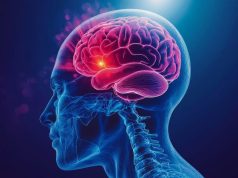Clinical measures of acuity and three-month impairment predicted subsequent therapy doses
By Lori Solomon HealthDay Reporter
FRIDAY, Feb. 24, 2023 (HealthDay News) — Use of rehabilitative therapy during the first year poststroke is low in the United States, according to a study published online Feb. 3 in Stroke.
Brittany M. Young, M.D., Ph.D., from the University of California in Los Angeles, and colleagues examined therapy doses and factors that predicted rehabilitation therapy dose during the first year of stroke recovery. The analysis included 510 adults with new radiologically confirmed stroke who were enrolled two to 10 days after stroke onset at 28 acute care hospitals across the United States. Participants were followed for 12 months.
The researchers found that therapy counts were low overall, with most therapy delivered within the first three months. During the one-year follow-up, 35.0 percent of patients did not receive physical therapy, 48.8 percent did not receive occupational therapy, and 61.7 percent did not receive speech therapy. There was a significant association seen between discharge destination and cumulative therapy. There was wide variation in the percentage of patients discharged to an inpatient rehabilitation facility (0 to 71 percent). Therapy dose was not predicted by most demographic factors, although Hispanic patients received a lower cumulative amount of physical therapy and occupational therapy. The severity of clinical factors predicted higher subsequent therapy doses. At three months after stroke, measures of impairment and function also predicted subsequent cumulative therapy doses.
“These findings reinforce that U.S. patients receive limited rehabilitation therapy after stroke and suggest directions for addressing this unmet need,” the authors write.
Copyright © 2023 HealthDay. All rights reserved.








